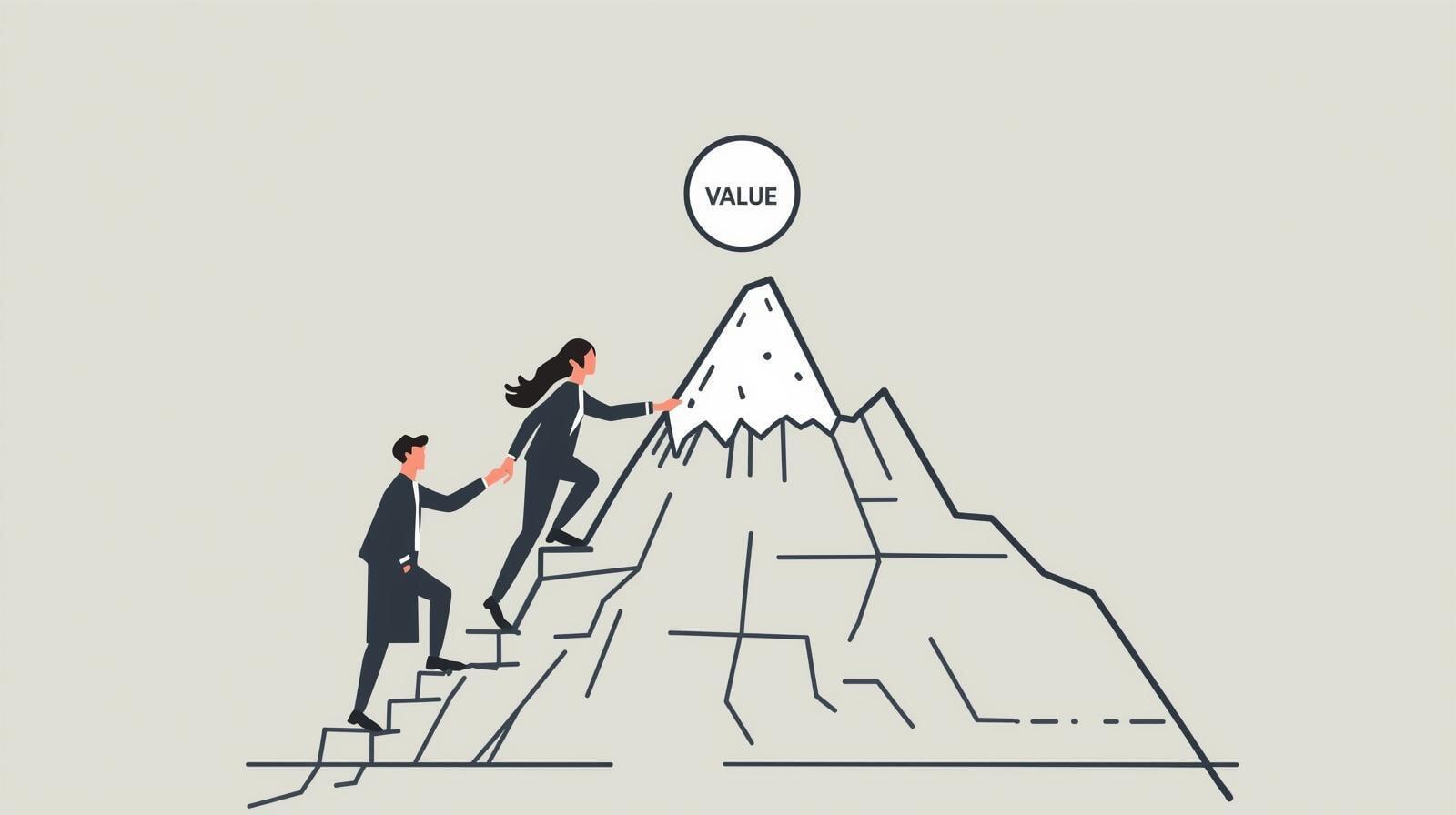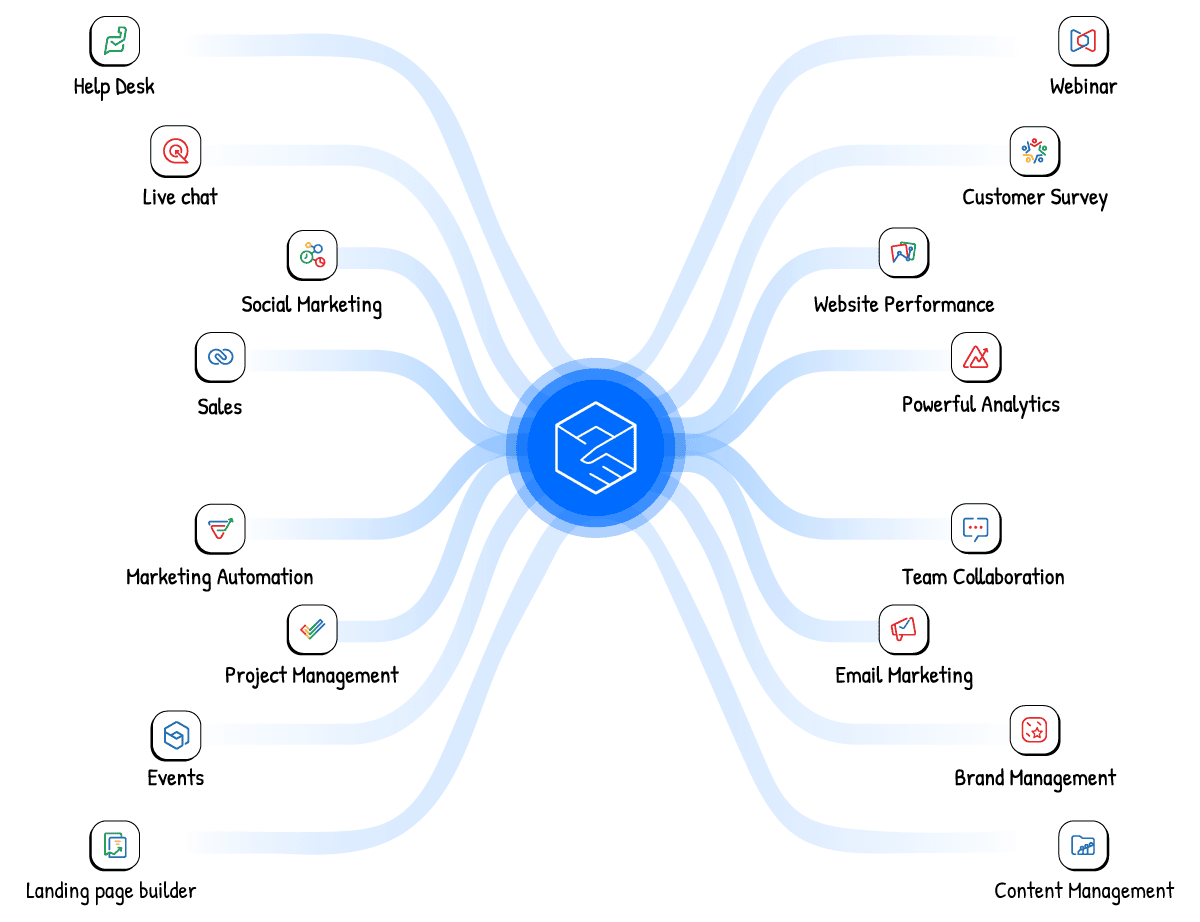In today's fast-paced business landscape, where digital tools and automation promise efficiency at every turn, it's easy to overlook the fundamentals of successful sales. Yet, at the heart of every thriving enterprise lies a simple truth: a valuable product isn't just a commodity—it's the foundation for forging enduring relationships with clients. This article explores the intrinsic power of a truly valuable offering, its symbiotic relationship with effective sales practices, and why shortcuts, including over-reliance on AI, simply won't cut it. Drawing on timeless principles, we'll see how understanding client values and leveraging customer relationship management (CRM) strategies can transform transactions into partnerships built on mutual benefit.

The Intrinsic Power of a Valuable Product
A valuable product transcends mere functionality; it solves real problems, delivers tangible benefits, and aligns seamlessly with the needs and aspirations of its users. Whether it's a cutting-edge software solution that streamlines operations for small businesses or a premium service that enhances quality of life, value is the currency that drives loyalty and repeat business.
Consider the impact: a product that genuinely adds value creates advocates out of customers. They don't just buy once—they return, refer others, and become integral to your brand's narrative. This power stems from perceived worth, where the benefits outweigh the costs not just financially, but emotionally and practically. In an era of commoditised goods, standing out requires innovation that resonates on a personal level. For instance, companies like Zoho have harnessed this by offering comprehensive CRM tools that empower businesses to manage customer interactions efficiently, turning everyday users into loyal evangelists. The lesson? Value isn't about bells and whistles; it's about delivering outcomes that matter.
The Interrelationship Between Product Value and Sales
Sales isn't a standalone process—it's deeply intertwined with the product's inherent value. A high-value product makes the salesperson's job easier, as it sells itself through demonstrated benefits. Conversely, even the most skilled sales team will struggle with a subpar offering, leading to short-term gains at best and damaged reputations at worst.
This interrelationship is evident in how sales strategies amplify product value. Effective selling involves articulating how the product addresses specific pain points, creating a narrative that connects emotionally with the buyer. When value is clear, sales conversations shift from persuasion to collaboration, fostering trust. Research from global consultancies highlights that businesses with strong product-market fit see conversion rates up to 30% higher, underscoring this synergy.
Moreover, sales feedback loops back into product development, refining value over time. By listening to client interactions, organisations can iterate on their offerings, ensuring they remain relevant. This cycle builds momentum: valuable products enable confident sales, which in turn strengthen client bonds.

No Shortcuts: People Buy from People
In the rush to optimise, many businesses turn to automation, hoping to scale sales without the human touch. But here's the rub—there are no shortcuts in building lasting relationships. People buy from people, not algorithms. Trust, empathy, and rapport are human qualities that no chatbot can fully replicate.
Lasting relationships are built on lasting value, delivered through authentic interactions. If a product can't be sold by a knowledgeable person who understands nuances and objections, don't expect an AI-operated bot to fare any better. Bots excel at handling routine queries or providing information, but they falter in the subtle art of negotiation, reading between the lines, or adapting to emotional cues. A 2023 study by Gartner revealed that while AI can boost efficiency, customer satisfaction in complex sales drops by 20% without human involvement.
Australian businesses, with our emphasis on mateship and straightforward dealings, know this intuitively. Think of a real estate agent who not only lists properties but builds rapport over coffee, understanding a buyer's family needs. That's irreplaceable value that cements loyalty far beyond a single deal.
Knowing Your Customer: Aligning Values for Mutual Success
At the core of effective sales lies a profound understanding of what your customers truly value. This starts with empathy—diving into their world to grasp pain points, goals, and priorities. How does your product align with these? Misalignment leads to fleeting transactions; alignment breeds partnerships.
Begin by segmenting your audience: What drives a millennial entrepreneur versus a corporate executive? Tools like surveys, feedback sessions, and data analytics can uncover these insights. Once armed with this knowledge, tailor your approach—customise pitches, offer personalised demos, and highlight relevant benefits. This alignment ensures that every interaction reinforces mutual value, turning clients into collaborators.

Leveraging CRM Strategies for Insight and Action
A robust CRM strategy is the linchpin in this process. Far from being just a database, a well-implemented CRM system captures customer data, tracks interactions, and provides actionable insights. It should aim to uncover what clients value, prompting timely actions that align with those needs.
For example, CRM tools like Zoho CRM Plus can flag opportunities based on behaviour patterns—such as a client viewing pricing pages multiple times—prompting a personalised follow-up. This insight-driven approach helps close sales not through pressure, but by demonstrating value. Post-sale, CRM nurtures relationships with automated yet human-touch reminders, like anniversary check-ins or value-add content.
The goal? Build relationships based on mutual value. By acting on insights, you show clients that you understand and care about their success, fostering loyalty that withstands market fluctuations. In Australia, where relationship-based business is key, integrating CRM with a value-centric mindset can differentiate your organisation in competitive sectors like tech and finance.
Conclusion: Embracing Value for Enduring Success
In summary, the power of a valuable product lies in its ability to create genuine connections, amplified through thoughtful sales practices. By recognising the unbreakable bond between product worth and human-led selling, businesses can avoid the pitfalls of shortcuts and AI overreach. Instead, focus on knowing your customers deeply, aligning with their values, and using CRM to turn insights into actions. Ultimately, lasting relationships aren't built on transactions—they're forged in the fire of mutual value. In a world of fleeting trends, this timeless approach ensures not just sales, but sustained growth and client advocacy. So, invest in value, sell with heart, and watch your relationships flourish.
Zoho CRM Plus captures, stores, and lets you interact with all the data-points associated with your leads and customers, allowing you to transform them into life-long clients.

